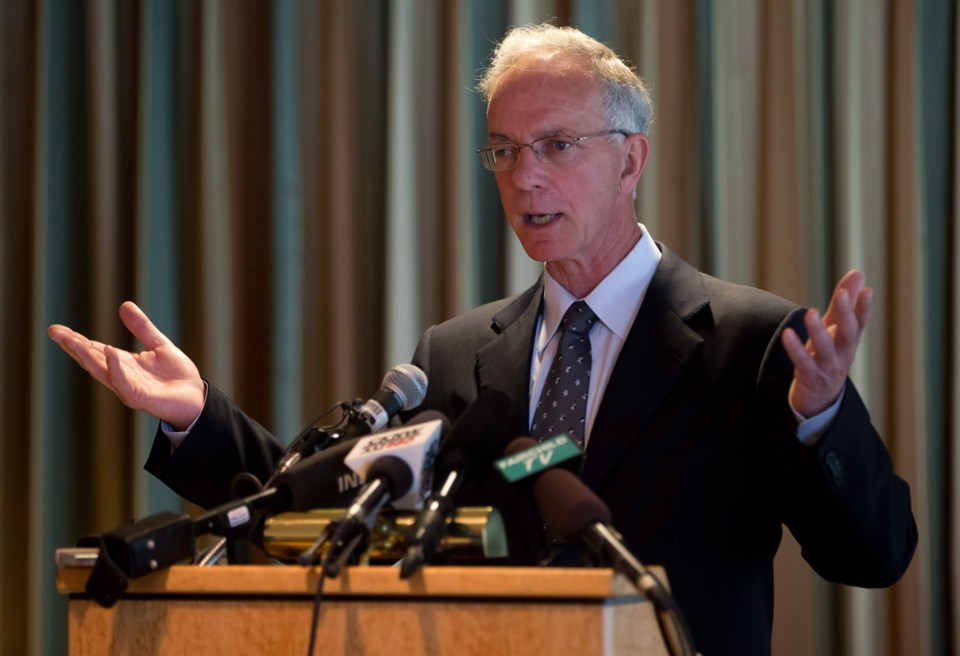Think globally to see that it makes environmental sense to build an oil refinery at Kitimat rather than in China, says businessman and Victoria resident David Black.
A Kitimat refinery would offset the need for a facility in Asia to process oil from Alberta, he said in an opinion piece which ran in one of his newspapers, the Kitimat Northern Sentinel.
Build the refinery in Kitimat and “there will be a major reduction in greenhouse gases,” he said. An Asian refinery would emit double the carbon dioxide of his planned state-of-the-art refinery on B.C.’s northern coast, Black said. “An Asian refinery will also generate 100 train cars a day of very dirty coke which will be subsequently burnt in the atmosphere to create power. The Kitimat refinery will not result in the production of any coke.” Coke is a by-product of the oil refining process.
“As we all live on one planet, it is far better for the global environment to build this refinery in Canada,” Black said.
Called Kitimat Clean Ltd., Black’s $25-billion project includes a refinery, a bitumen pipeline from Alberta, a natural gas pipeline to fuel the refinery, and a fleet of liquid natural gas-powered tankers. Bitumen is a thick and heavy form of crude oil. The refinery would handle about 550,000 barrels of oil daily.
Kitimat Clean has won support from Green MLA Andrew Weaver, who said in February that refining Alberta oil in B.C. may be the best compromise available to limit environmental concerns, while also giving Canada’s oil industry access to new markets.
Black opposes shipping bitumen in tankers. If bitumen spilled, it would sink rapidly in B.C.’s coastal waters and there would be little chance of recovering it, he said. “Refining bitumen before it is loaded into tankers solves this problem because refined fuels float and evaporate.”
The debate about oil on B.C.’s coast has led to misinformation, Black said. He takes issue with anyone who says bitumen does not sink. “That is nonsense.”
He also disagrees with those who say a spill such as the 1989 Exxon Valdez in Alaska could not happen today because of double and divided hulls. “Again, this is nonsense.” Double hulls can fracture if there is a collision at speed, he said.
Accidents are bound to happen, even with global positioning systems, more due to human error than systems failure, he said.
Tankers are the most critical component when shipping oil because recovery is so difficult, he said. If bitumen spilled from a tanker, “we would destroy the coast and fishery for hundreds of years.”
Building a refinery in Kitimat would remove any chance of a bitumen spill in the ocean, he said.
Modern pipelines can be built and operated safely, Black said. Some of the best pipelining companies in the world are based in Canada.
In addition to environmental benefits, Black points to the economic benefit that would flow from his plan.
Refinery construction would create 6,000 jobs in B.C. for five years, he said. Operations at the refinery — expected to have a 50-year lifespan — would result in about 3,000 direct, highly paid, permanent jobs, creating more work than any other project in B.C., he said. Thousands more spin-off jobs would be created as well.
“We have a solid business plan and, as a consequence, the money is available to build the greenest and most efficient refinery in the world,” he said. — Times Colonist



